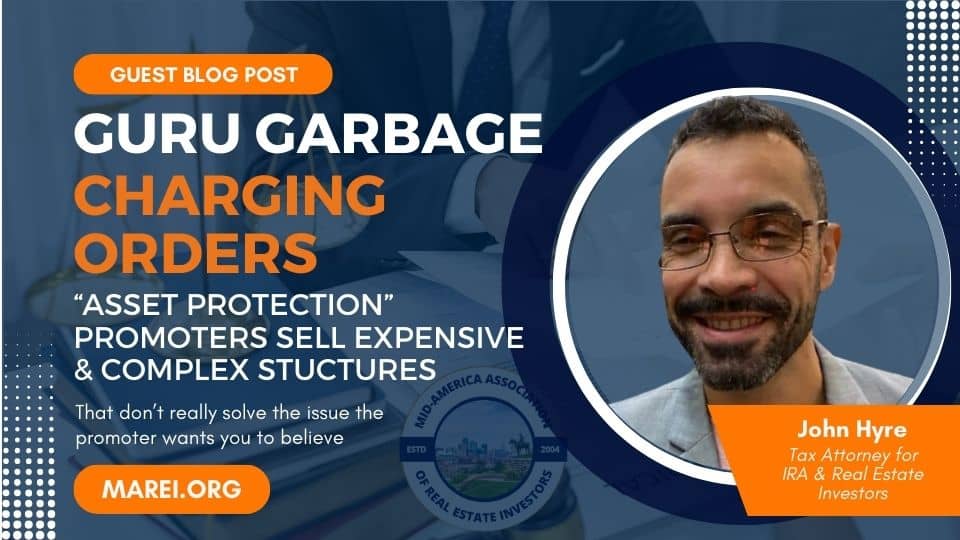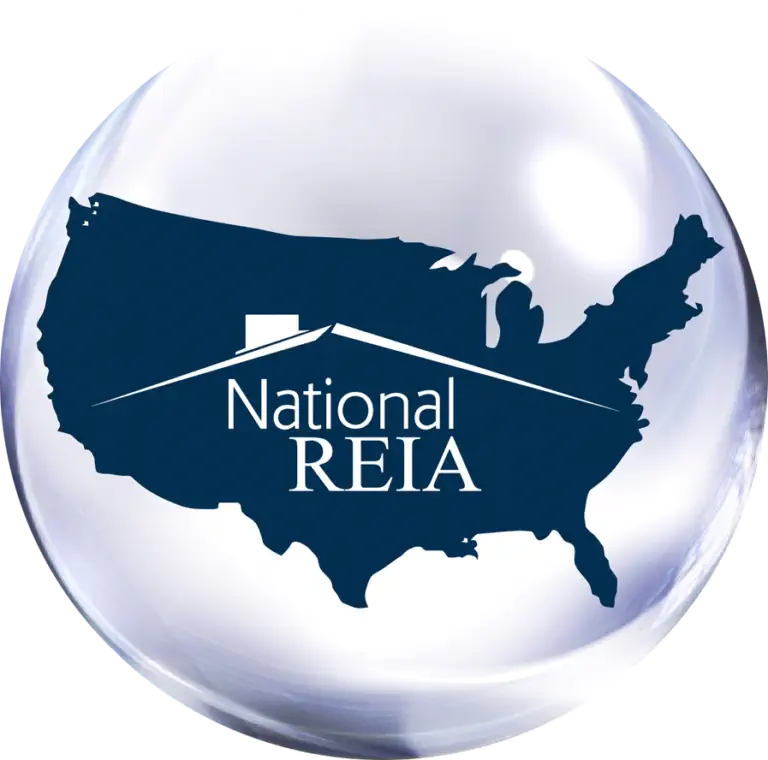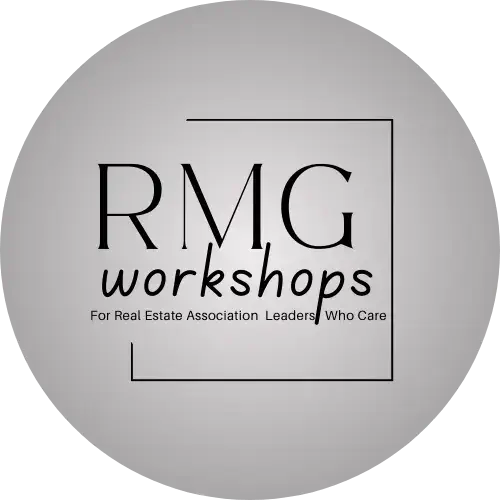
Most of you know that sloppy “asset protection” promotors (Most especially out of Nevada & Utah) have earned my ire. They often promote overly expensive & complex structures that solve imaginary problems or fail to solve real problems.
These people also put out lots of false information. That’s the problem with the internet – TMI, what to believe?
If you want to learn the best way as a real estate investor and – or Self Directed IRA and Solo 401k Investor, we invite you to join us on Saturday September 28th when we host John Hyre for a 6 hour MAREI Master Class on Protecting Our Assets from the Tax Man or Law Suit. And while John can command $1000’s of dollars per billable hour, this 4 hours is less than $50 for MAREI members when they register early.
(Non-members are welcome too!)
The Garbage the Asset Protection Promoters Try to Sell You – Save Your Money
For example, Charging Orders. Many NV/UT asset protection sharks state that if a creditor places a charging order on your LLC, that creditor is liable for your portion of the LLC’s taxes. False.
Charging Orders on an LLC
One: Gurus often assert that when it comes to your LLCs, the sole remedy for a creditor with a judgment against you personally (e.g., from a car accident, etc.) is to place a Charging Order on the LLC. That is true in most States (and no, creating an LLC in Nevada usually will not “get around” bad State law in your State).
Two: Hyre Says Charging Orders are just liens. Indeed, the “Charging Order” nomenclature is confusing and has its roots in judicial history. Referring to a Charging Order as a Lien makes understanding much simpler. I’ve never heard one of those “asset protection gurus” simplify matters in such a fashion. Wonder why? Let’s call Charging Orders what they are: Liens.
Three: Gurus assert that personal creditors will not place a Lien on LLCs because said creditors shall then be taxable on your share of the LLC’s income. False.
Four: Just placing a Lien on property (whether a home or an LLC) makes you a creditor with a secured debt. Placing a lien on a property does not make you an owner of the property – you have to foreclose on the Lien to become an owner. Creditors with liens do NOT pay taxes generated on the underlying property.
Five: Gurus often cite IRS Revenue Ruling 77-137 to support the idea that Liens make the creditor liable for the income generated by/on the underlying property. They have clearly not read the Ruling. It states that when someone becomes a member (“assignee”) of an LLC against the other LLC members’ wishes (such an event may occur if a creditor actually forecloses on a Lien on the LLC), then that assignee is treated as a Member for tax purposes – that is, they owe tax on their portion of the LLC’s income. That makes sense – once you own property, you owe taxes on the income generated by that property. The Ruling does NOT state that a mere creditor with a Lien owes taxes on the property’s income.
Want to learn more of the basics of how to protect your assets, well if you are on John’s email list you might have received an invite to his deep dive 16 hour class coming up in October, for the rest of us, he is going to be teaching a Half Day Master Class September 28th. If you have never attended one of John’s Asset Protection Classes, this is a must attend (or watch the replay) for those that have attended, this is a perfect opportunity for a refresher, just incase you might have gotten sloppy in your ways since. Get all the details here.
And for our professionals that want an in depth class from John . . . check out his “Horrifyingly Detailed Entities Class Online” over 8 – 2 hour Zoom Calls.


